100% domestically grown grapes
Domestic brewing
Japanese wine is defined by the National Tax Agency’s manufacturing method quality labeling standards as wine that is brewed domestically using only domestically harvested grapes as raw materials.
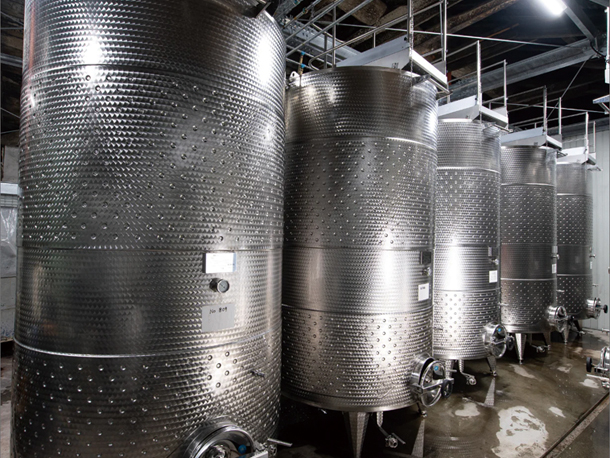
Hayashi Farm Shiojiri, Nagano
Hayashi Goichi, the founder of Hayashi Farm, began cultivating fruit trees in Kikyogahara in 1911 and began producing wine in 1919. Our motto is that good wine comes from growing good grapes, and in 1951 we became the first company in Nagano Prefecture to cultivate Merlot. In 2011, in addition to our vast 7-hectare farm, we opened a new 5-hectare Kakizawa Farm. We cultivate grapes by taking advantage of the soil and climate that are suitable for growing Merlot. The resulting grapes are characterized by an elegant taste with a perfect balance of mellow fruit and tannins. In addition, Hayashi Farm brews various types of wine using grapes grown by approximately 100 contracted farmers in addition to our own farm. We place particular emphasis on producing wines such as Concord and Niagara, which are local to Shiojiri, as well as Merlot and Chardonnay, which are highly acclaimed around the world.
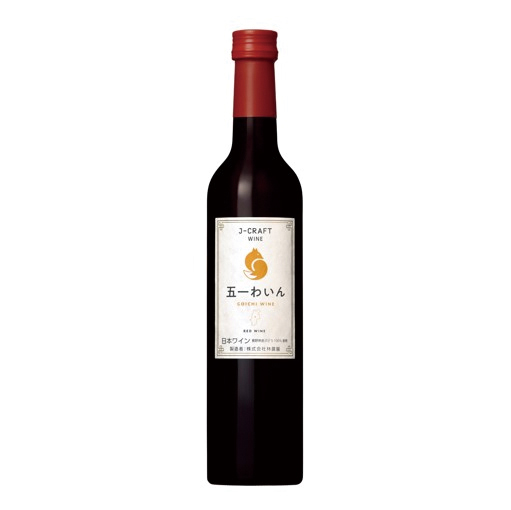
Goichi Wine
red/medium-bodied
Muscat Bailey A・Merlot
Merlot from Shiojiri City, Nagano Prefecture is blended with Muscat Bailey A to reduce bitterness and give it a gentle and light taste. It goes well with fried chicken, hamburger, and sukiyaki.
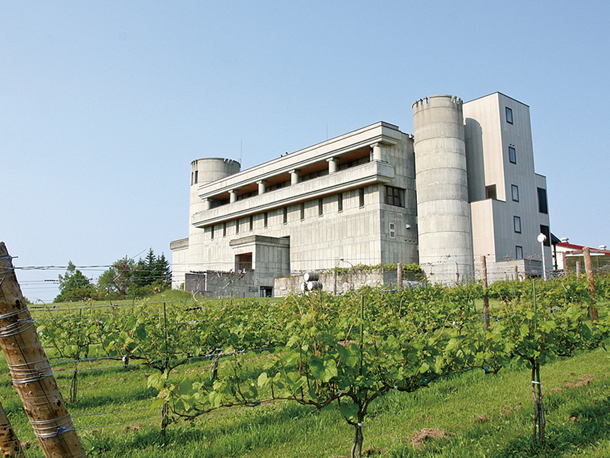
Tokachi Wine Ikeda, Nakagawa-gun, Hokkaido
Tokachi Wine was established in 1963 in Ikeda Town, Hokkaido as Japan’s first municipally managed winery. Tokachi is a cold region that makes it difficult to grow grapes, but we have been researching grape cultivation methods suitable for cold regions and developing unique varieties, while referring to wild grapes that grow naturally in the mountains. Based on the idea that wine production begins with grape production, more than 21,000 grape varieties have been crossbreeded so far. The grape variety perfected after many years of research is Kiyomai and Yamasachi. Kiyomai is characterized by its light color, strong acidity, and light flavor. On the other hand, Yamasachi is characterized by its dark color, bitterness, and deep flavor. Brewing takes place at the Ikeda Town Grape and Wine Research Institute, also known as the Wine Castle, and the wine is aged in French oak barrels in its underground aging room.
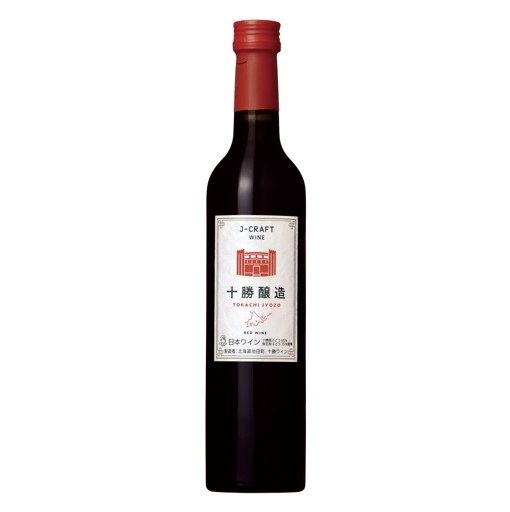
Tokachi Brewery
red/medium-bodied
Yamasachi 65%・zweigeltrebe 35%
Yamasachi is Tokachi Wine’s proprietary variety. It has the acidity and softness of wild grapes derived from Yamasachi, and has a wild yet well-balanced acidity and tannins. It goes well with yakiniku, ethnic dishes, and tomato-based pasta.
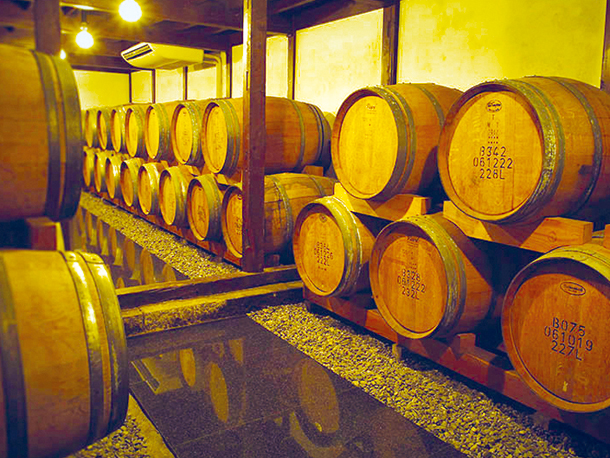
Katsunuma Brewing Koshu, Yamanashi
Koshu is a grape variety unique to Japan with a history of over 1300 years. We are particular about the variety of grapes we use as raw materials, and cultivate Koshu ourselves. Since our founding in 1937, we have taken on the challenge of making world-class wine using Koshu, while taking advantage of the natural blessings of Katsunuma and incorporating cutting-edge technologies such as reverse osmosis membrane concentrators and freezing concentration methods. In order to affirm the world’s highest wine production costs, we are particular about every manufacturing process, pursuing wines that offer value beyond price, surprise, and excitement. Koshu have large fruit and a lot of water, so if the squeeze rate is low, the juice will be watery. However, by carefully and slowly squeezing the grapes without stressing them, the flavor between the skin and flesh can be extracted. Furthermore, the unique bitterness of Koshu that comes out when squeezed thoroughly is used to create a wine that stands out with its original personality.
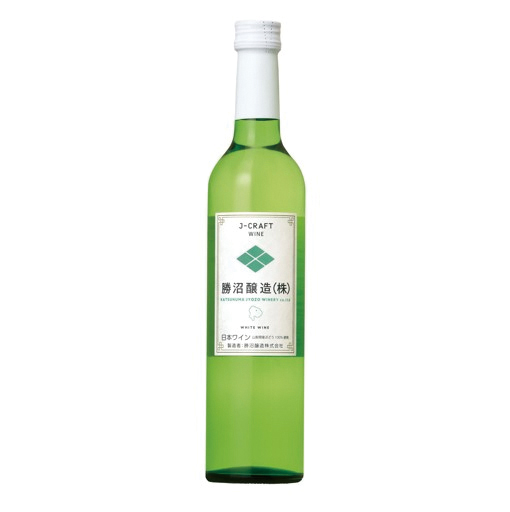
Katsunuma Brewing
white/dry
Koshu
Koshu from Yamanashi Prefecture is characterized by its delicate aroma and taste. It has a strong acidity and can be enjoyed even more by pairing it with dishes that allow you to enjoy the ingredients. It goes well with sushi, cold tofu, soba, and yakitori.
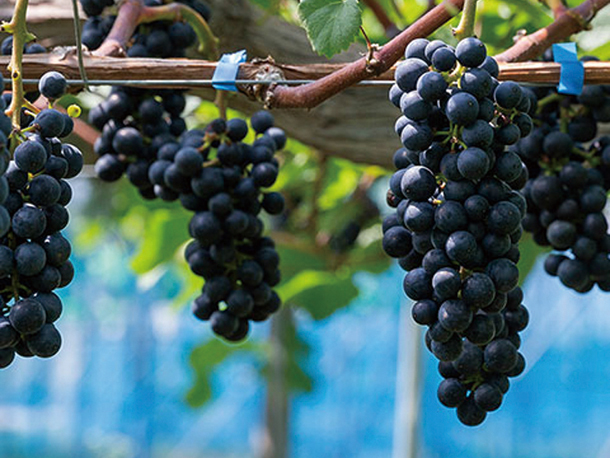
Edel Wine Hanamaki, Iwate
Edel wine started making wine in Ohazama, Hanamaki City in 1962. The climate and natural features of Osama have been blessed with the sacred mountain Hayachine since ancient times, and have continued to provide the richness and harshness of nature to the people who live there. The Hayachine area, which is a designated area of Hayachine Quasi-National Park, is also a source of rich water, and the blessings of nature and the passion of the producers grow delicious grapes, and the wine produced there also has a deep and mysterious taste. Low precipitation, large temperature difference between day and night, and slightly alkaline limestone soil. Thanks to that climate and cool climate suitable for growing grapes, grapes are cultivated to produce unique wines with a minerality and sharp acidity.
Edel Wine
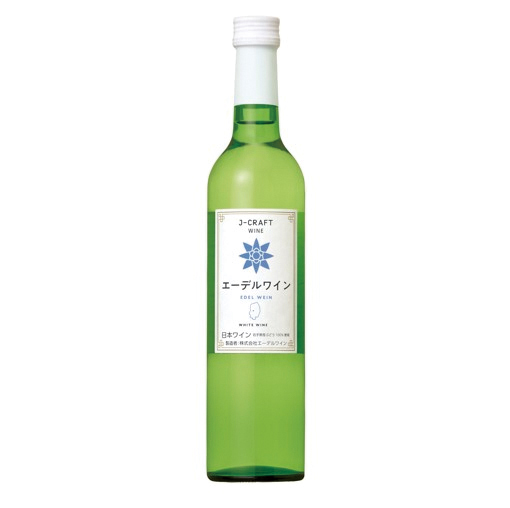
White/medium
Riesling Rion
Riesling Rion, a grape variety grown in Hanamaki, is an improved domestic variety that was created by crossing Koshu Sanjaku and Riesling. It is refreshing with a fruity scent like citrus, a subtle sweetness, and a long acidity. It goes well with tempura, fried oysters, and kinpira burdock.
